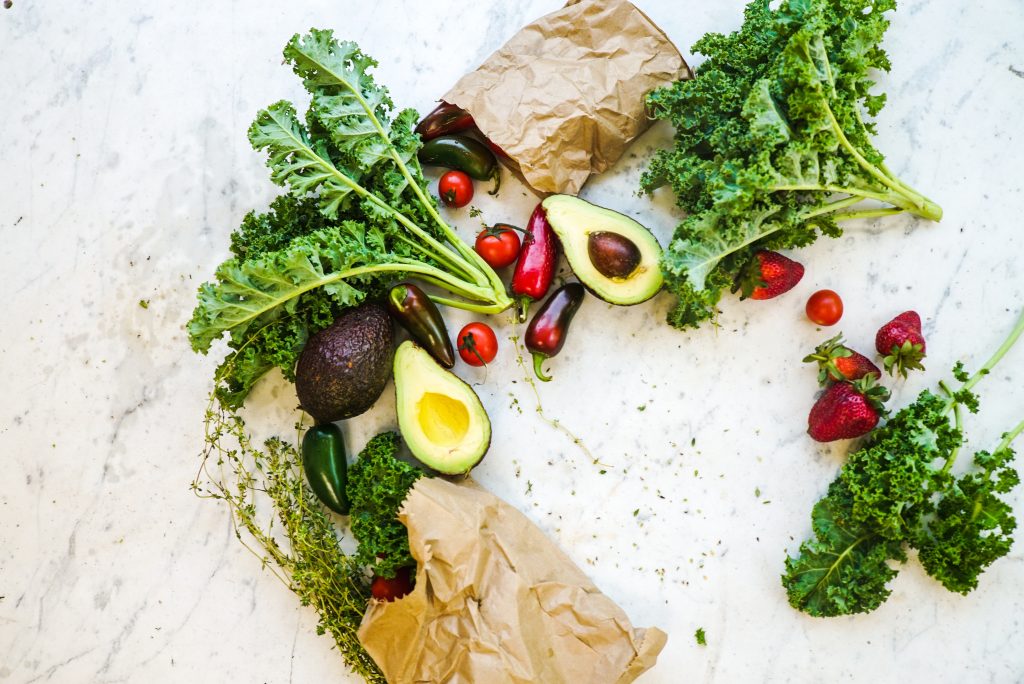
The Ultimate Dukan Diet Food List: What to Eat in Each Phase
The Dukan Diet is a high-protein, low-carbohydrate diet that is divided into four phases. Here is a general food list for each phase:
Phase 1 (Attack Phase):
- Lean proteins: chicken, turkey, beef, veal, pork, fish, seafood, eggs, tofu
- Non-fat dairy: skim milk, cottage cheese, yogurt
- Non-starchy vegetables: spinach, lettuce, kale, broccoli, cucumbers, mushrooms, peppers
Phase 2 (Cruise Phase):
- All foods from Phase 1
- Non-starchy vegetables: artichokes, asparagus, beets, carrots, celery, eggplant, fennel, green beans, okra, onions, pumpkin, radishes, tomatoes, zucchini
Phase 3 (Consolidation Phase):
- All foods from Phases 1 and 2
- Whole-grain bread, pasta, and rice
- Fruit: apples, bananas, berries, cherries, citrus fruits, grapes, melons, peaches, pears, plums
- Starchy vegetables: corn, peas, potatoes, sweet potatoes, yams
- Limited amounts of cheese, nuts, and other carbohydrates
Phase 4 (Stabilization Phase):
- All foods are allowed in moderation, with an emphasis on protein, vegetables, and whole grains
- One “protein-only” day per week is recommended to maintain weight loss.
It’s important to note that the Dukan Diet may not be suitable for everyone, especially those with certain medical conditions. As with any diet, it’s best to consult with a healthcare professional before starting.
The Dukan Diet: A Comprehensive Guide to Effective Weight Loss
The Dukan Diet emphasizes several key principles for effective weight loss:
- Eliminate or reduce fatty foods: Fat, both from animals and plants, is the primary enemy when it comes to weight loss. This includes fat from cooking oil, sauces, marinades, dips, butter, cream, cheese, and sausages. To lose weight, it is essential to reduce or eliminate these foods from your diet.
- Limit animal fats: Animal fats contain cholesterol and triglycerides and pose a risk to the cardiovascular system. It is important to reduce animal fats if you are at risk of cardiovascular disease or high cholesterol.
- Avoid simple carbohydrates: Simple sugars, like table sugar, are quickly assimilated and can trigger the pancreas to produce large amounts of insulin, which increases appetite and fat storage. It is important to avoid simple carbohydrates and opt for slow sugars found in whole grains or legumes instead.
- Focus on protein: Proteins have a moderate caloric value and are not completely assimilated. This means that they provide a longer-lasting feeling of fullness and reduce overall calorie intake. Aim to consume 2-3 ounces of pure protein daily and drink 1 ½ quarts of water to eliminate waste products.
- Slowly assimilated foods keep you feeling full: The slower a food is assimilated, the longer it takes to feel hungry again. Sweet foods are absorbed and assimilated the most rapidly, followed by fatty foods, and then proteins. Choosing foods that take longer to digest can help you feel fuller for longer and reduce overall calorie intake.
100 Natural Foods That Keep You Slim
The following food list comprises 100 natural foods that you can eat as much as you like and still keep your weight in check.
Category 1: Meat
- Flank steak, sirloin, London broil
- Beef tenderloin, filet mignon
- Extra-lean kosher beef hot dogs
- Lean deli sliced roast beef
- Buffalo
- Venison
- Extra-lean ham
- Pork tenderloin, pork loin roast
- Lean center-cut pork chops
- Reduced-fat bacon, soy bacon
- Veal chops, veal Scaloppine
Category 2: Poultry
- Chicken
- Ostrich steak
- Chicken liver
- Turkey
- Low-fat deli slices of chicken or turkey
- Cornish hen
- Nonfat turkey and chicken sausage
- Wild duck
- Quail
- Rabbit
Category 3: Fish
- Arctic char
- Catfish
- Cod
- Flounder
- Grouper
- Haddock
- Halibut and smoked halibut
- Herring
- Mackerel
- Mahi-mahi
- Monkfish
- Orange roughy
- Perch
- Red snapper
- Salmon or smoked salmon
- Sardines
- Sea bass
- Shark
- Sole
- Surimi
- Swordfish
- Tilapia
- Trout
- Tuna, fresh or canned in water
Category 4: Shellfish
- Clams
- Crab
- Crawfish, crayfish
- Lobster
- Mussels
- Octopus
- Oysters
- Scallops
- Shrimp
- Squid
Category 5: Eggs
- Chicken eggs
Category 6: Nonfat Dairy Products
- Fat-free cottage cheese
- Fat-free cream cheese
- Fat-free ricotta
- Fat-free sour cream
- Nonfat milk
- Nonfat yogurt, unsweetened or artificially sweetened
Category 7: Plant Proteins
- Tofu
- Tempeh
- Seitan
- Soy foods and veggie burgers (see “Category 8: Vegetable Proteins”)
Category 8: Vegetable Proteins
- Soy foods and veggie burgers
- Other vegetarian meat substitutes
Category 9: Vegetables
- Artichoke
- Asparagus
- Bean sprouts
- Beet
- Bell peppers
- Broccoli
- Brussels sprouts
- Cabbage
- Carrots
- Cauliflower
- Celery
- Cucumber
- Eggplant
- Endive
- Fennel
- Green beans
- Kale
- Lettuce, arugula, radicchio
- Mushrooms
- Okra
- Onions, leeks, shallots
- Palm hearts
- Peppers
- Pumpkin
- Radishes
- Rhubarb
- Spaghetti squash
- Spinach
- Tomato
- Turnip
- Watercress
- Zucchini
Category 10: Sugar-Free Gelatin
Conclusion: These natural foods are not only good for keeping your weight in check, but also for maintaining overall health. Incorporating them into your diet can be beneficial in the long run.
FAQ Section
Question: What is the Dukan Diet?
The Dukan Diet is a high-protein, low-carbohydrate diet that is divided into four phases. It emphasizes lean proteins, non-starchy vegetables, and gradual reintroduction of other food groups.
Question: What foods can I eat during the Attack Phase?
During the Attack Phase, you can eat lean proteins such as chicken, turkey, beef, veal, pork, fish, seafood, eggs, and tofu. Non-fat dairy products like skim milk, cottage cheese, and yogurt are also allowed, along with non-starchy vegetables like spinach, lettuce, kale, broccoli, cucumbers, mushrooms, and peppers.
Question: What foods are allowed in the Cruise Phase?
The Cruise Phase allows all the foods from the Attack Phase. Additionally, you can include non-starchy vegetables such as artichokes, asparagus, beets, carrots, celery, eggplant, fennel, green beans, okra, onions, pumpkin, radishes, tomatoes, and zucchini.
Question: What can I eat during the Consolidation Phase?
In the Consolidation Phase, you can continue consuming all the foods from Phases 1 and 2. You can also introduce whole-grain bread, pasta, and rice, along with fruits like apples, bananas, berries, cherries, citrus fruits, grapes, melons, peaches, pears, and plums. Starchy vegetables such as corn, peas, potatoes, sweet potatoes, and yams are allowed in limited amounts. Some cheese, nuts, and other carbohydrates can be included as well.
Question: What foods are allowed in the Stabilization Phase?
In the Stabilization Phase, all foods are allowed in moderation, with an emphasis on protein, vegetables, and whole grains. It is recommended to have one “protein-only” day per week to maintain weight loss.
Question: Is the Dukan Diet suitable for everyone?
The Dukan Diet may not be suitable for everyone, especially those with certain medical conditions. It is advisable to consult with a healthcare professional before starting any diet, including the Dukan Diet.
Question: What are the key principles of the Dukan Diet for effective weight loss?
The key principles of the Dukan Diet for effective weight loss include eliminating or reducing fatty foods, limiting animal fats, avoiding simple carbohydrates, focusing on protein, and consuming slowly assimilated foods to feel full for longer.
Question: What are some examples of natural foods that keep you slim?
Natural foods that you can consume to maintain weight include various meats like flank steak, sirloin, chicken, turkey, fish, and shellfish. Poultry options include chicken liver, turkey, and Cornish hen. Fish options include salmon, cod, trout, and tuna. Nonfat dairy products, plant proteins like tofu and tempeh, and a variety of vegetables are also included.
Question: Can I incorporate sugar-free gelatin in my diet?
Yes, sugar-free gelatin can be included as a dessert or snack option on the Dukan Diet. Just make sure it is free of added sugars.
Please note that the above information is a general overview, and it’s essential to refer to a comprehensive Dukan Diet guide or consult a healthcare professional for personalized advice and guidance.
A Beginner’s Guide to the Dukan Diet: How to Lose Weight and Keep it Off
Calorie Deficit Without Sacrificing Flavor: 6 Scrumptious Meals to Try Today





